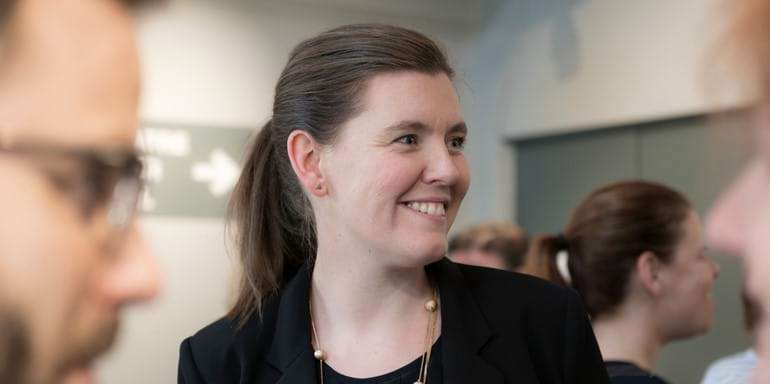Patsy Gilbert has enjoyed a varied and successful career as an actor, singer, educator and community practitioner. She now works as Vice Principal and Director of School of Performance at Leeds Conservatoire.
Patsy has been involved in projects such as the Vocal Points programme in 2006 with The Sage, Gateshead, which united vocal professionals from music, theatre and health to discuss and explore many aspects of vocal production.

You have worked in a number of different sectors within the Performing Arts Industry, including acting, singing and education, but where did your journey into this career path begin?
I started out as an actor and singer, and really loved performing. I didn’t have any family or friends linked to the arts so didn’t really know how to turn it into a career, so just said yes to anything that came my way. I worked out from that what I really loved doing and then followed that.
My undergraduate degree was in Community Arts – I am particularly passionate about access to arts provision and telling stories – other people’s and my own. I then went onto a Masters Degree in Voice at Central School of Speech and Drama because I became really interested in how people use their voices (artistic or otherwise) for self-advocacy. The work I did through those courses and all the various personal/professional projects throughout that period powered ever career move I’ve made since.
What have been some of the highlights of your career so far?
The stuff I’ve most enjoyed tends to be my ‘highlights’. I once co-ordinated a singing event for 600 people at a National Trust property in London which was excellent – creating a vocal soundscape as people walked through the grounds of Ham House on its 400th birthday. It was a mammoth operation but really showed me how much I thrive on pressure and want to make exciting, safe, welcoming environments for people through my own artistic and education work.
I worked very closely with Balance CIC in Kingston, a charity who work with vulnerable adults. With students, I devised theatre projects around self-advocacy, rights and responsibilities and consent. Working with that group, and seeing the students engaging and interacting to tell their experiences was really rewarding.
I’ve done lots of really great recording projects – working on adverts and albums and films, particularly looking at using the voice in interesting and unusual ways. All of them have been great (that’s a lie - some of them have been awful) but the ones I’ve loved the most have been where I’ve been able to be creatively involved and just ‘play’. I’m very lucky that I’ve been able to do that.
Throughout your career, what has been the most important thing you’ve learned?
Nothing that happens HAS to happen like that. So, question everything. Sometimes being the person with the least knowledge and experience can be a powerful tool if you use it to make positive changes.
Also, when you first start out, say yes to everything, and if you don’t know how to do something, learn quickly. Once you’re more established you can be more choosy, know what to say no to and where you can use your experience and influence to support others/pass on opportunities.
The Music & Performing arts industry is going through a time of real change – why do you think it’s important for people to study the arts and pursue their plans to work in the industry?
Because being an artist is a vocation, not a job. The Music and Performing Arts industry is always changing so training in the arts isn’t about preparing students for one job, it’s about being creative, being flexible, defining your artistic practice and being prepared for an industry which doesn’t even exist yet. The arts industry will be shaped by the people in it.
I had no idea when I started working and training that I would be in this role at the conservatoire, in fact I didn’t know this kind of job existed or how to get here. But my training and development as an artist helped me to understand who I was, what I wanted to do and what I was good at.
That’s why it’s still really important that those people with interesting, challenging, important stories to tell still want to train in and contribute to this industry as a whole.
Follow Patsy on Twitter







